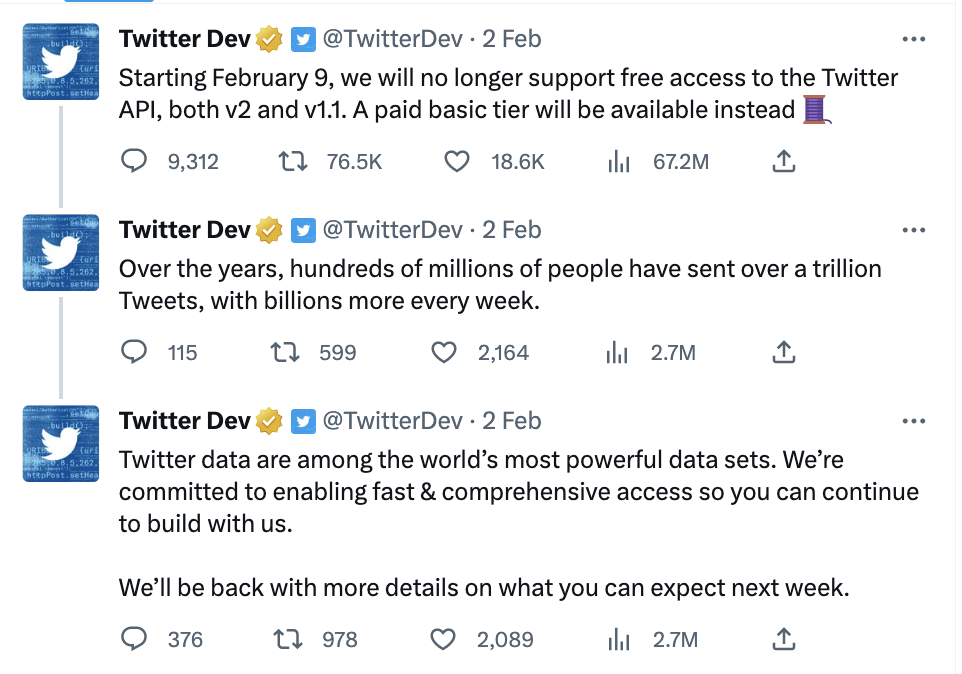The Case for Reverting to Web Forums
There is a case for reverting to web forums. Web forums are small communities of like minded people that form around topics, ideas, or ideals. They want to have conversations where you look at topics and sub topics, rather than following people. By having conversations on a smaller scale there is more waiting around for answers, but the connections should be more worthwhile.
Recently the ActivityPub plugin for Wordpress jumped to version 1.0.0 from version 0.0.something. In so doing I expected to find that two way conversations would be possible from wordpress to the Fediverse, and back from the Fediverse to WordPress and ClassicPRess.
That isn’t the case. Much Ado about Nothing. I really thought that the experience would have bounded to be a full-fledged solution.
Facebook and Twitter
When they were new Facebook and Twitter were great. Twitter was great because it was a community of strangers who had deep conversations online, so that when they met in person they felt like old friends. With hashtags, and the desire to have more followers people lost track of conversations, and so it became an impersonal popularity contest.
With Facebook we had a community of university friends that we got along with, in person, that reconnected with online, to share images, events and more. At the time this was great. The problem occurred when we went from conversing with friends, to playing Zynga, because after that Facebook became a place to waste time, through no fault of our own. It was designed to become a waste of time, to keep us active.
The Fediverse
For a few weeks, or even a few months I felt that the fediverse had a lot to offer. Eventually I saw that all the problems that I saw with Twitter were also present on the Fediverse. People wanted to be followed by millions, they wanted lists, and they wanted hashtags. I also felt quite a bit of aggression, trolling, and people with baggage. I deleted myself from several Fediverse instances because I didn’t feel that they were healthy places to be.
Enter phpBB.
phpBB is one of the oldest parts of the social web. phpBB boards have been around since the 90s but as we got used to Twitter, FaceBook, Myspace and other sites we forgot about the smaller, interest based communities. I don’t want to invest thousands of hours in a twitter clone. I went to become part of an online community that is small, but convivial. Setting up a web forum is easy. It’s finding a community that is challenging. That’s the challenge I face.
My Ideal
My ideal is to find an online community that is local, to chat with online, before meeting in person on a regular basis. I should be able to find that through a sporty community, like I had for years, before the current doldrums.
And Finally
One of the weaknesses of Facebook, Twitter, Instagram, YouTube and other online communities is that we follow people, rather than topcics and ideas. Of course we can follow “hasthags” but for me this is awful because it helps people spam, and distracts people from having conversations around ideas. By following people, rather than threads of conversation we’re on an open web of noise. With web forums we revert to a quieter social network where we wait for answers. in theory we can ask for notifications, rather than waiting.
I think that reverting to web forums is a good idea, because it allows us to re-build communities on a personal scale.
For now I am trying My Friends Misfits








